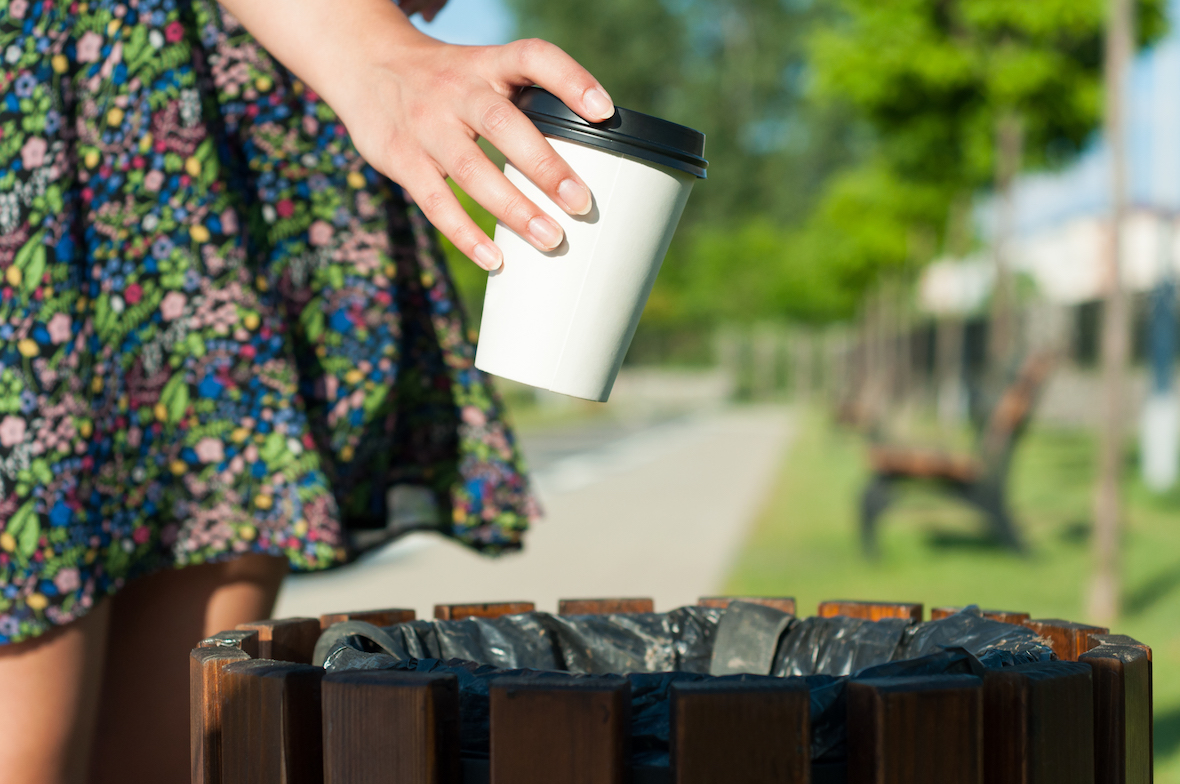Save £65 per year on your coffee while helping the environment
We all love a cup of the hot stuff in the morning. Whether yours is a flat white, a cappuccino with hazelnut syrup, a tall decaf, a latte with soy, or even a fruity tea, there's something extremely comforting and social about enjoying a takeaway hot drink.
For some of us it's a daily ritual, a potion that gets us up and moving and ready for the day ahead... but what if we told you that your coffee is having a big impact on the environment?
We're wasting 5,000 used cups every minute

Did you know that coffee drinkers in the UK get through an astonishing amount of coffee cups every year? According to the driving force behind Hugh's War on Waste, Hugh Fearnley Whittingstall:
"It's estimated that 2.5 billion 'paper' coffee cups are being thrown away in the UK every year. That's almost 5,000 a minute, or 7 million per day."
Astonishing, isn't it? Shockingly, only a small percentage of these cups are being recycled. In fact, it's roughly less than 6 million cups a year and that works out to be less than one day's worth**. The problem is that these takeaway coffee cups are not recyclable throughout the UK due to their construction and that's why the majority of them end up at the incinerator or landfill sites.
You can help the environment though while also saving big bucks on your takeaway coffee
If we all took a conscious effort to bring our own mugs to our favourite coffee shops we would soon greatly reduce the amount of coffee cups being thrown away each day. But that's not all - Starbucks offer their customers a 25p discount off their hot drink when they bring their own mug!
This 25p discount means that you could potentially save £5 per month off your coffee, or a whopping £65 per year. Imagine what you could do with that saved cash; you could treat yourself to a flashy new hair 'do, a spa treatment or treat your friends to a takeaway... awesome!
So what are your mug options?
- You can rock up with your trusted household mug; you'll save 25p on your drink and help the environment too, but let's be honest, china mugs are slightly impractical outside the house. You'd have to hold it pretty darn straight while carrying it, not to mention that your hot drink will go cold pretty fast too!
- Some people bring a travel mug; which is definitely a level up from your household china as it has a lid and you can usually operate it with one hand... plus of course you'll receive 25p off with each takeaway! The bad news is that most travel mugs are plastic and not insulated, so your drink will still go cold pretty fast in them.
- To up your game you could opt for a fully insulated flask of course; your drink will stay super hot pretty much all day, but if you're a commuter then you might be making things tricky for yourself. Regular insulated flasks are less practical than travel mugs as you still need 2 hands to unscrew the lid, pour the drink into the cup compartment and then drink it.
- Lucky for you though, thermally insulated travel mugs do exist! They are basically a cross between a travel mug and a flask and so will not only keep your drink hot for several hours, they're also easy to drink straight out of and practical to operate with one hand. Plus of course they save you 25p off each drink purchased at Starbucks and help take better care of your environment!
Our verdict
Of all the travel mugs we tried, Interflask wins our 'Best Ever Mug' prize. It not only keeps your coffee hot for several hours, but it also prevents leaking with a safety lock and it's drinking spout is lovely to drink out of. In fact, we like it so much that we've secured a 10% discount for you to use when purchasing your own insulated travel mug. Click here to claim yours.
Here's to cheaper, more eco-friendly coffee!

*Based on one person purchasing 5 cups of coffee per week from Starbucks using their own mug to receive 25p off per drink.
** As part of his research, Hugh Fearnley-Whittingstall spoke to Simply Cups. He found out that: "... the total [amount of cups] they handle is still less than 6 million a year - less than a quarter of a percent of the cups we throw away."
